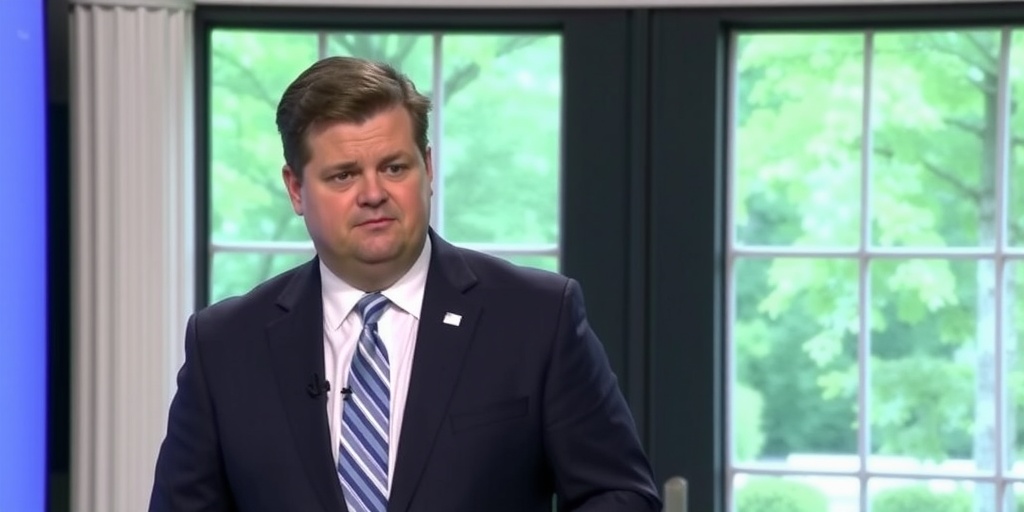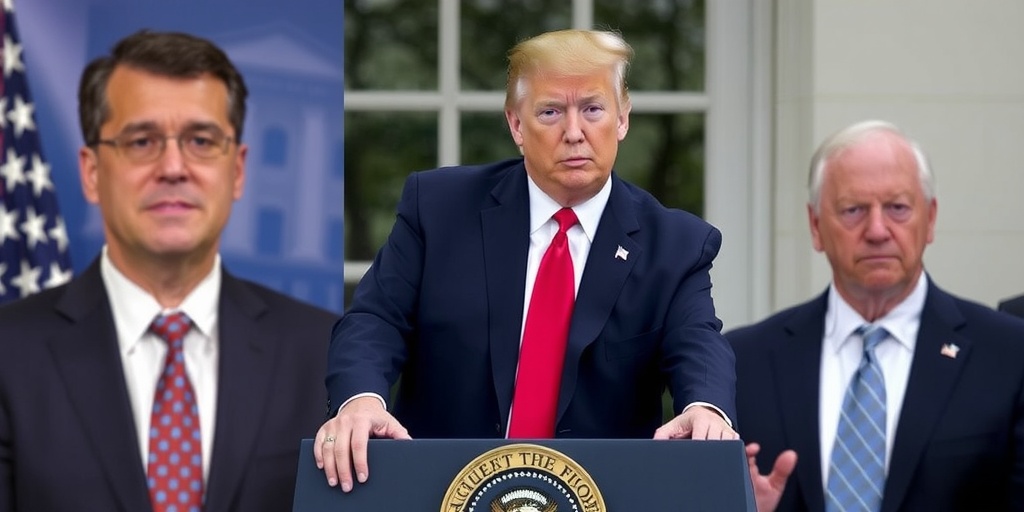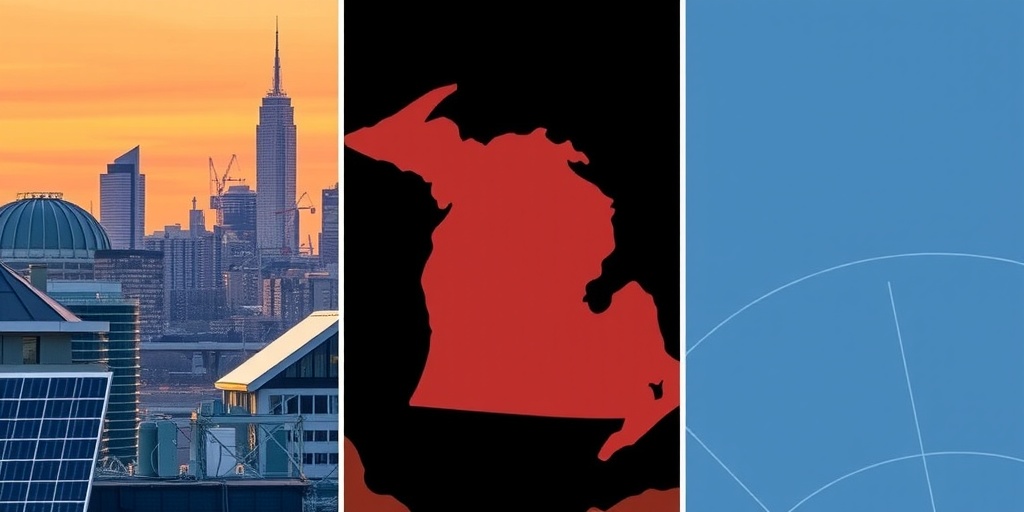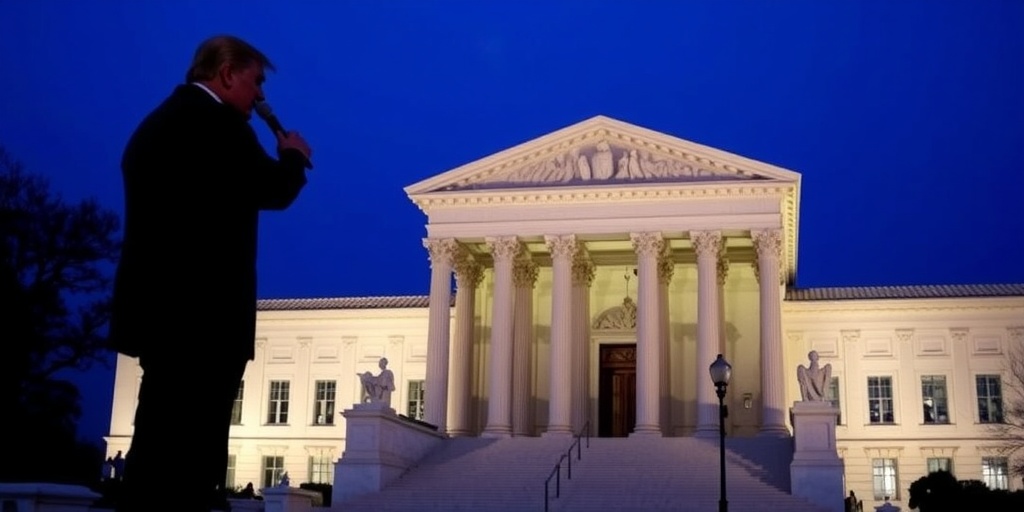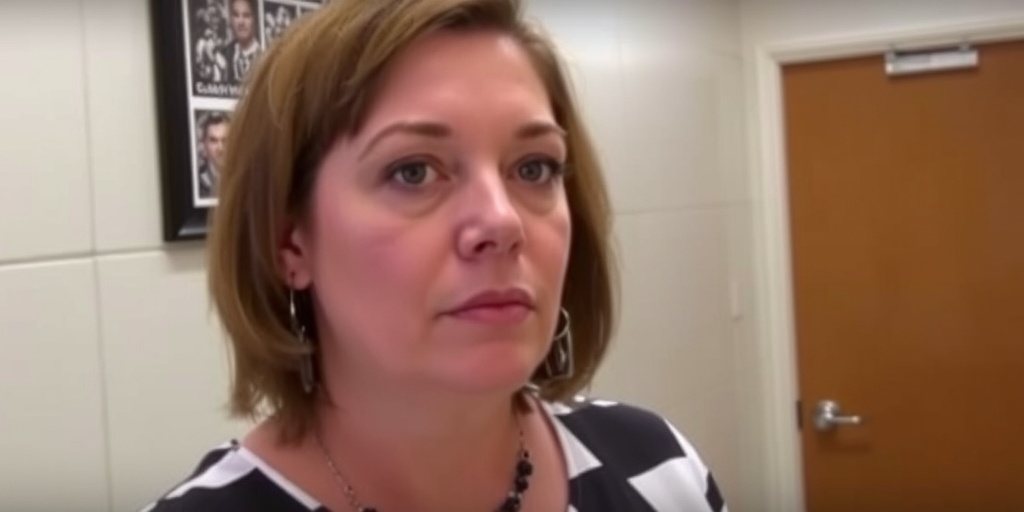Now Reading: Defending Trump’s Policies in Court Sparks Criticism and Consequences
-
01
Defending Trump’s Policies in Court Sparks Criticism and Consequences
Defending Trump’s Policies in Court Sparks Criticism and Consequences
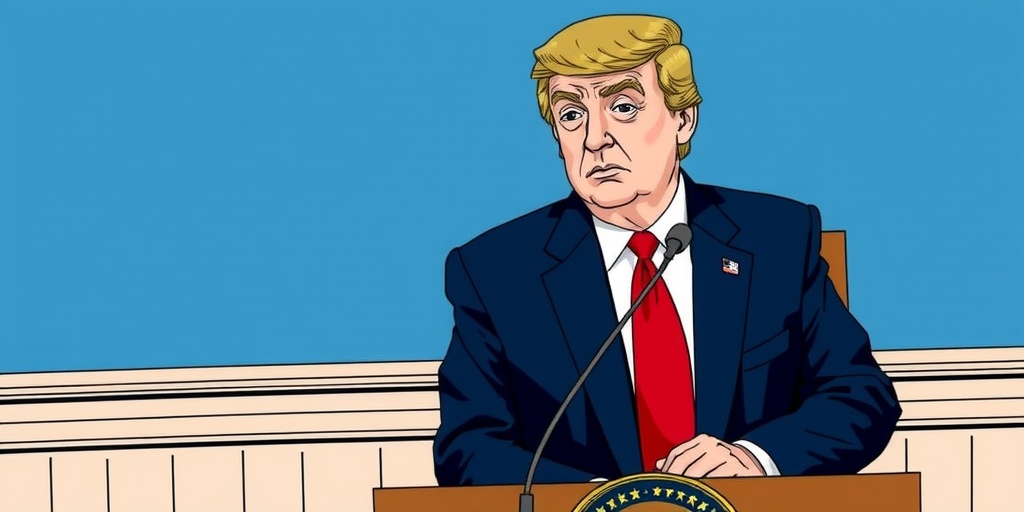
Title: Tensions Rise in Justice Department Amid Trump Administration’s Legal Struggles
The Trump administration has faced significant legal challenges in its attempts to implement its agenda, leading to intense courtroom confrontations between judges and lawyers from the Justice Department. As the administration pushes its policies, many of which are seen by critics as legally questionable, lawyers defending these positions are increasingly finding themselves in difficult positions.
The Justice Department’s civil division, already stretched thin by staff shortages, has found itself at the forefront of this escalating conflict. Insiders report that legal teams are struggling to cope with the demands of defending policies that often lack clear factual or legal support. Career attorneys, who traditionally advocate for the goals of the administration regardless of their own beliefs, now feel caught between the rigid demands of President Trump’s appointed officials and the scrutiny of skeptical judges.
A particularly striking example of this discord emerged recently with the case of Erez Reuveni, a senior immigration lawyer at the Justice Department. Following his candid acknowledgment in court that the wrongful deportation of a Maryland resident, Kilmar Armando Abrego Garcia, should not have occurred, Reuveni was suspended indefinitely. During a hearing presided over by Judge Paula Xinis, Reuveni admitted that he required additional time to persuade the Trump administration to reverse its decision regarding Garcia’s deportation.
Instead of supporting their lawyer facing intense pressure from the judiciary, the administration took punitive measures. Todd Blanche, the deputy attorney general, criticized Reuveni for conducting himself in a manner prejudicial to the client, showing a clear disconnect between the department’s lawyers and the political leadership’s expectations.
This incident highlights a troubling trend within the Justice Department, where lawyers feel cornered between following the President’s orders and adhering to their ethical obligations. Stacey Young, a former department attorney, remarked that Justice Department lawyers now find themselves in a precarious position where they must choose either to obey political directives or fulfill their commitments to the court and the Constitution. The administration’s recent actions led to the suspension of another senior immigration lawyer, August Flentje, further increasing the strain on an already beleaguered division.
The challenges facing the civil division are exacerbated by a significant loss of personnel due to retirements and transfers, which have not been balanced by new hires amidst the political appointees’ focus on maintaining control rather than expanding the workforce. Reuveni was not a newcomer to government law; he had previously worked on initiatives aligned with Trump’s agenda, including pursuing legal actions against localities that provided sanctuary to undocumented immigrants.
There have been numerous instances in recent months where career prosecutors faced repercussions for refusing to pursue actions they deemed unethical, such as the case against New York Mayor Eric Adams. This climate of fear is having a chilling effect on the department’s ability to operate effectively, as high-ranking political appointees increasingly assume roles previously filled by career officials.
Attorney General Pam Bondi’s directive emphasizes that lawyers must align with decisions made by superiors, sending a chilling message that diverging from these directives could lead to serious consequences. The administration’s tactics of coercing career lawyers who question the legality of certain executive actions appear to stem directly from Trump and his close advisers, who prioritize political interests over established legal norms.
The rapid implementation of executive orders has resulted in a surge of legal challenges, with the courts responding aggressively to what they view as overreach. Judges across the country have expressed skepticism regarding the justifications presented by government lawyers, eliciting exasperation and disbelief. In one hearing, Judge John Bates of the Federal District Court asked a government lawyer to explain the basis for a White House directive that targeted the law firm Jenner & Block, only to receive an unsatisfactory answer.
Additional frustrations arose when Judge James E. Boasberg criticized the Justice Department for insufficient compliance with his previous orders regarding deportation flights to El Salvador. After questioning the rationale behind the administration’s decisions, he suggested that contempt hearings might be necessary due to the lack of transparency.
As these legal battles unfold, it has become evident that the dynamics within the Justice Department are shifting dramatically. Judges have grown increasingly frustrated with the inconsistent and seemingly arbitrary reasons offered by government lawyers in response to legal challenges, leading to heightened tensions.
With the Trump administration’s aggressive legal strategies continuously prompting pushback from the judiciary, the future of the Justice Department remains uncertain. The significant losses in its civil division and the pressure placed on its career officials to comply with political mandates suggest that this pattern of conflict will persist, potentially undermining the integrity of the department as an impartial arbiter of justice.
Stay Informed With the Latest & Most Important News
Previous Post
Next Post
-
 01New technology breakthrough has everyone talking right now
01New technology breakthrough has everyone talking right now -
 02Unbelievable life hack everyone needs to try today
02Unbelievable life hack everyone needs to try today -
 03Fascinating discovery found buried deep beneath the ocean
03Fascinating discovery found buried deep beneath the ocean -
 04Man invents genius device that solves everyday problems
04Man invents genius device that solves everyday problems -
 05Shocking discovery that changes what we know forever
05Shocking discovery that changes what we know forever -
 06Internet goes wild over celebrity’s unexpected fashion choice
06Internet goes wild over celebrity’s unexpected fashion choice -
 07Rare animal sighting stuns scientists and wildlife lovers
07Rare animal sighting stuns scientists and wildlife lovers













